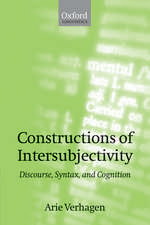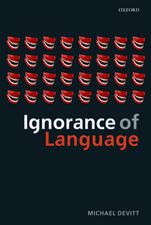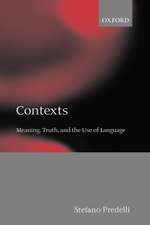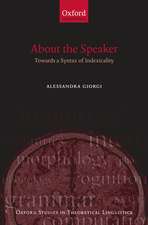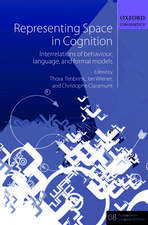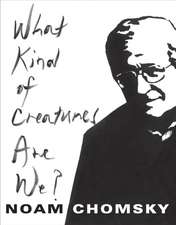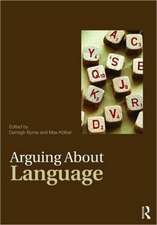The Philosophy of Grammar
Autor Otto Jespersenen Limba Engleză Paperback – 31 aug 1992
This study grew out of a series of lectures Jespersen gave at Columbia
University in 1909-10, called “An Introduction to English Grammar.”
It is the connected presentation of Jespersen's views of the general
principles of grammar based on years of studying various languages
through both direct observation of living speech and written and
printed documents.
“[The Philosophy of Grammar and Analytic Syntax] set
forth the most extensive and original theory of universal grammar
prior to the work of Chomsky and other generative grammarians of the
last thirty years.”—Arne Juul and Hans F. Nielsen, in Otto
Jespersen: Facets of His Life and Work
“Besides being one of the most perceptive observers and original
thinkers that the field of linguistics has ever known, Jespersen was
also one of its most entertaining writers, and reading The
Philosophy of Grammar is fun. Read it, enjoy it.”—James D.
McCawley, from the Introduction
Otto Jespersen (1860-1943), an authority on the growth and structure
of language, was the Chair of the English Department at the University
of Copenhagen. Among his many works are A Modern English
Grammar and Analytic Syntax, the latter published by the
University of Chicago Press.
University in 1909-10, called “An Introduction to English Grammar.”
It is the connected presentation of Jespersen's views of the general
principles of grammar based on years of studying various languages
through both direct observation of living speech and written and
printed documents.
“[The Philosophy of Grammar and Analytic Syntax] set
forth the most extensive and original theory of universal grammar
prior to the work of Chomsky and other generative grammarians of the
last thirty years.”—Arne Juul and Hans F. Nielsen, in Otto
Jespersen: Facets of His Life and Work
“Besides being one of the most perceptive observers and original
thinkers that the field of linguistics has ever known, Jespersen was
also one of its most entertaining writers, and reading The
Philosophy of Grammar is fun. Read it, enjoy it.”—James D.
McCawley, from the Introduction
Otto Jespersen (1860-1943), an authority on the growth and structure
of language, was the Chair of the English Department at the University
of Copenhagen. Among his many works are A Modern English
Grammar and Analytic Syntax, the latter published by the
University of Chicago Press.
| Toate formatele și edițiile | Preț | Express |
|---|---|---|
| Paperback (2) | 348.79 lei 6-8 săpt. | |
| University of Chicago Press – 31 aug 1992 | 348.79 lei 6-8 săpt. | |
| Taylor & Francis – 11 noi 2010 | 425.43 lei 6-8 săpt. | |
| Hardback (1) | 1574.71 lei 6-8 săpt. | |
| Taylor & Francis – 16 oct 2006 | 1574.71 lei 6-8 săpt. |
Preț: 348.79 lei
Nou
Puncte Express: 523
Preț estimativ în valută:
66.75€ • 69.16$ • 55.71£
66.75€ • 69.16$ • 55.71£
Carte tipărită la comandă
Livrare economică 21 martie-04 aprilie
Preluare comenzi: 021 569.72.76
Specificații
ISBN-13: 9780226398815
ISBN-10: 0226398811
Pagini: 372
Dimensiuni: 140 x 216 x 23 mm
Greutate: 0.45 kg
Ediția:1
Editura: University of Chicago Press
Colecția University of Chicago Press
ISBN-10: 0226398811
Pagini: 372
Dimensiuni: 140 x 216 x 23 mm
Greutate: 0.45 kg
Ediția:1
Editura: University of Chicago Press
Colecția University of Chicago Press
Cuprins
Introduction by James D. McCawley
Preface
Abbreviations of Book Titles, etc.
Phonetic Symbols
I Living Grammar
Speaker and Hearer • Formulas and Free Expression • Grammatical Types • Building up of Sentences
II Systematic Grammar
Descriptive and Historical Linguistics • Grammar and Dictionary • Sounds • Usual Division of Grammar • New System • Morphology
III Systematic Grammar- continued
Syntax • Universal Grammar? • Differences Of Languages • What Categories to Recognize •
Syntactic Categories • Syntax and Logic • Notional Categories
IV Parts of Speech
Old Systems • Definitions • The Basis of Classification • Language and Real Life • Proper
Names • Actual Meaning of Proper Names
V Substantives and Adjectives
Survey of Forms • Substance and Quality • Specialization • Interchange of the Two Classes • Other Combinations
VI Parts of Speech- concluded
Pronouns • Verbs • Particles • Summary • Word
VII The Three Ranks
Subordination • Substantives • Adjectives • Pronouns • Verbs • Adverbs • Word Groups • Clauses • Final Remarks
VIII Junction and Nexus
Adjuncts • Nexus
IX Various Kinds of Nexus
Finite Verb • Infinitival Nexus • Nexus Without a Verb • Nexus-Object, etc. • Nexus Subjunct • Nexus of Deprecation • Summary • Appendix
X Nexus Substantives. Final Words on Nexus
Abstracts • Infinitives and Gerunds • Final Words on Nexus
XI Subject and Predicate
Various Definitions • Psychological and Logical Subject • Grammatical Subject • There is
XII Object. Active and Passive
What is an Object? • Object of Result • Subject and Object • Reciprocity • Two Objects • Adjectives and Adverbs with Objects • Passive • Use of the Passive • Middle Voice • Active and Passive Adjectives • Active and Passive Substantives • Nexus-Substantives
XIII Case
Number of English Cases • Genitive • Nominative and Oblique • Vocative • Final Words about Cases • Prepositional Groups
XIV Number
Counting • The Normal Plural • Plural of Approximation • Higher Units • Common Number • Mass-Words
XV Number- concluded
Various Anomalies • The Generic Singular and Plural • Dual • Number in Secondary Words • Plural of the Verbal Idea • Appendix
XVI Person
Definitions • Common and Generic Person • Notional and Grammatical Person • Indirect Speech • Fourth Person • Reflexive and Reciprocal Pronouns
XVII Sex and Gender
Various Languages • Aryan Gender • Sex • Common Sex • Animate and Inanimate • Conceptional Neuter
XVIII Comparison
Comparative and Superlative • Equality and Inequality • Weakened Superlatives and Comparatives • Latent Comparisons • Formal Comparatives • Indication of Distance • Secondaries and Tertiaries
XIX Time and Tense
The Nine-Tense System • Seven Tenses • Main Divisions of Time • Subordinate Divisions of Time • Economy of Speech • Non-temporal Use of Tenses
XX Time and Tense- concluded
The Perfect • Inclusive Time • Passive Tenses • Aorist and Imperfect • The English Expanded Tenses • Terms for the Tenses • Time-Relations in Nouns (including Infinitives) • Aspect
XXI Direct and Indirect Speech
Two Kinds • Shifting of Tenses • Shifting of Mood • Questions in Indirect Speech • Indirect Requests • Final Remarks
XXII Classification of Utterances
How Many Classes? • Questions • Sentence
XXIII Moods
Classification • Imperative • Indicative and Subjunctive • Notional Moods
XXIV Negation
Contradictory and Contrary • Some Tripartitions • The Meaning of Negation • Special and Nexal Negation • Double or Cumulative Negation • History of Negatives • Implied Negation
XXV Conclusion
Conflicts • Terminology • The Soul of Grammar
Appendix
Subject Index
Index of Names
Index of Languages and Language Families
Preface
Abbreviations of Book Titles, etc.
Phonetic Symbols
I Living Grammar
Speaker and Hearer • Formulas and Free Expression • Grammatical Types • Building up of Sentences
II Systematic Grammar
Descriptive and Historical Linguistics • Grammar and Dictionary • Sounds • Usual Division of Grammar • New System • Morphology
III Systematic Grammar- continued
Syntax • Universal Grammar? • Differences Of Languages • What Categories to Recognize •
Syntactic Categories • Syntax and Logic • Notional Categories
IV Parts of Speech
Old Systems • Definitions • The Basis of Classification • Language and Real Life • Proper
Names • Actual Meaning of Proper Names
V Substantives and Adjectives
Survey of Forms • Substance and Quality • Specialization • Interchange of the Two Classes • Other Combinations
VI Parts of Speech- concluded
Pronouns • Verbs • Particles • Summary • Word
VII The Three Ranks
Subordination • Substantives • Adjectives • Pronouns • Verbs • Adverbs • Word Groups • Clauses • Final Remarks
VIII Junction and Nexus
Adjuncts • Nexus
IX Various Kinds of Nexus
Finite Verb • Infinitival Nexus • Nexus Without a Verb • Nexus-Object, etc. • Nexus Subjunct • Nexus of Deprecation • Summary • Appendix
X Nexus Substantives. Final Words on Nexus
Abstracts • Infinitives and Gerunds • Final Words on Nexus
XI Subject and Predicate
Various Definitions • Psychological and Logical Subject • Grammatical Subject • There is
XII Object. Active and Passive
What is an Object? • Object of Result • Subject and Object • Reciprocity • Two Objects • Adjectives and Adverbs with Objects • Passive • Use of the Passive • Middle Voice • Active and Passive Adjectives • Active and Passive Substantives • Nexus-Substantives
XIII Case
Number of English Cases • Genitive • Nominative and Oblique • Vocative • Final Words about Cases • Prepositional Groups
XIV Number
Counting • The Normal Plural • Plural of Approximation • Higher Units • Common Number • Mass-Words
XV Number- concluded
Various Anomalies • The Generic Singular and Plural • Dual • Number in Secondary Words • Plural of the Verbal Idea • Appendix
XVI Person
Definitions • Common and Generic Person • Notional and Grammatical Person • Indirect Speech • Fourth Person • Reflexive and Reciprocal Pronouns
XVII Sex and Gender
Various Languages • Aryan Gender • Sex • Common Sex • Animate and Inanimate • Conceptional Neuter
XVIII Comparison
Comparative and Superlative • Equality and Inequality • Weakened Superlatives and Comparatives • Latent Comparisons • Formal Comparatives • Indication of Distance • Secondaries and Tertiaries
XIX Time and Tense
The Nine-Tense System • Seven Tenses • Main Divisions of Time • Subordinate Divisions of Time • Economy of Speech • Non-temporal Use of Tenses
XX Time and Tense- concluded
The Perfect • Inclusive Time • Passive Tenses • Aorist and Imperfect • The English Expanded Tenses • Terms for the Tenses • Time-Relations in Nouns (including Infinitives) • Aspect
XXI Direct and Indirect Speech
Two Kinds • Shifting of Tenses • Shifting of Mood • Questions in Indirect Speech • Indirect Requests • Final Remarks
XXII Classification of Utterances
How Many Classes? • Questions • Sentence
XXIII Moods
Classification • Imperative • Indicative and Subjunctive • Notional Moods
XXIV Negation
Contradictory and Contrary • Some Tripartitions • The Meaning of Negation • Special and Nexal Negation • Double or Cumulative Negation • History of Negatives • Implied Negation
XXV Conclusion
Conflicts • Terminology • The Soul of Grammar
Appendix
Subject Index
Index of Names
Index of Languages and Language Families
Notă biografică
Otto Jespersen (1860-1943), an authority on the growth and structure of language, was the Chair of the English Department at the University of Copenhagen.




